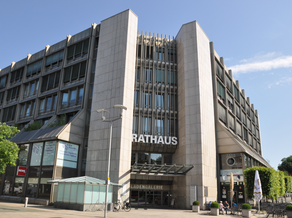The term "records" does not only refer to paper documents. It includes all information regardless of the type and form of its carrier. The Hessian Archive Act mentions, for example, "deeds, official books, files, documents, official publications, card indexes, maps, plans, posters, seals, stamps, image, film and sound recordings as well as all other information objects, including digital recordings, regardless of their storage form".
The transition to the digital age also brings new challenges for the city archive. More and more documents are being created exclusively digitally and must be evaluated and archived in this form. This applies to previously paper-based registers and official records (e.g. residents' registration and civil status registers) as well as data in electronic specialist procedures and files that are now only kept electronically in a so-called document management system.
Digital long-term archiving places special demands on the evaluation and transfer to the archive as well as the preservation of the legibility and interpretability of the archived data.




